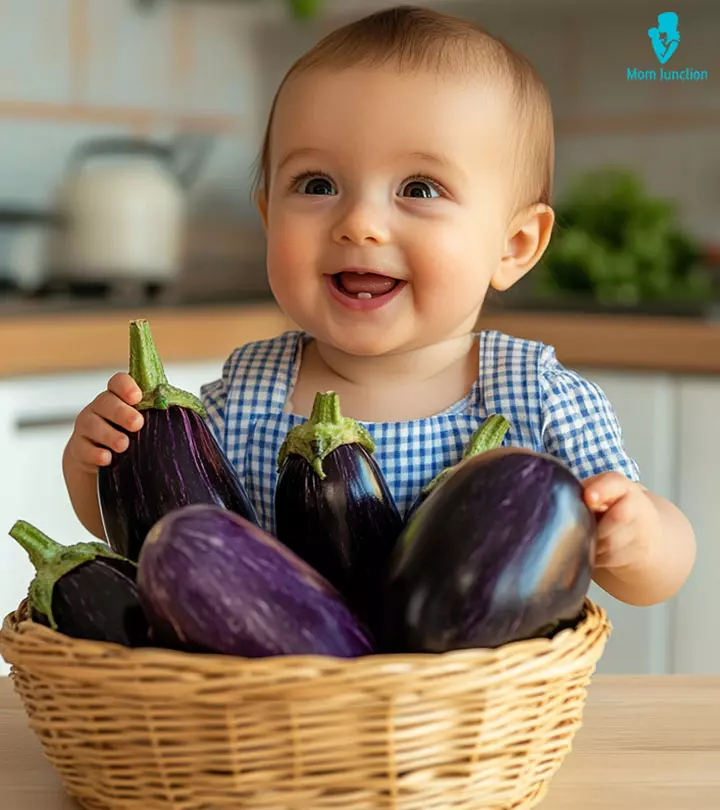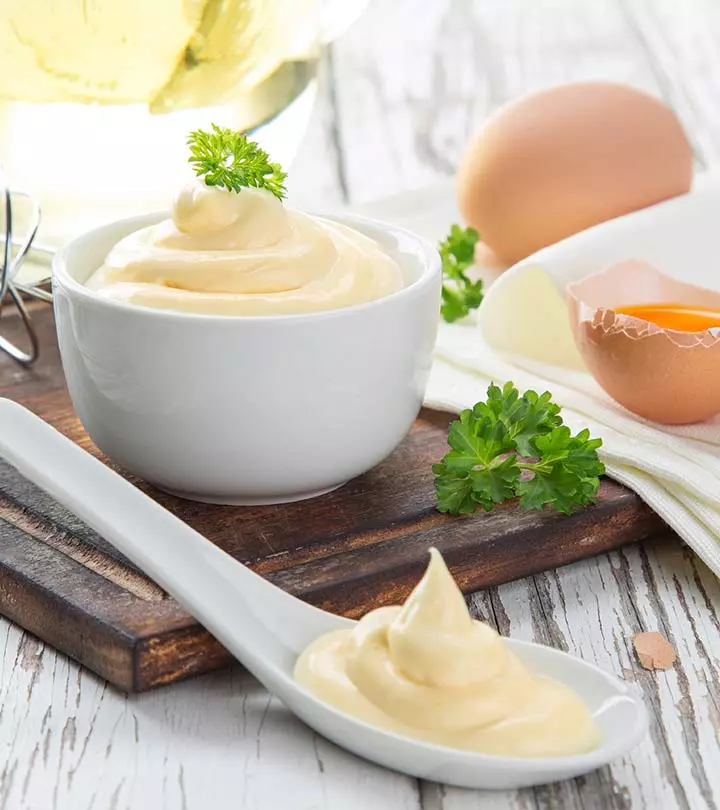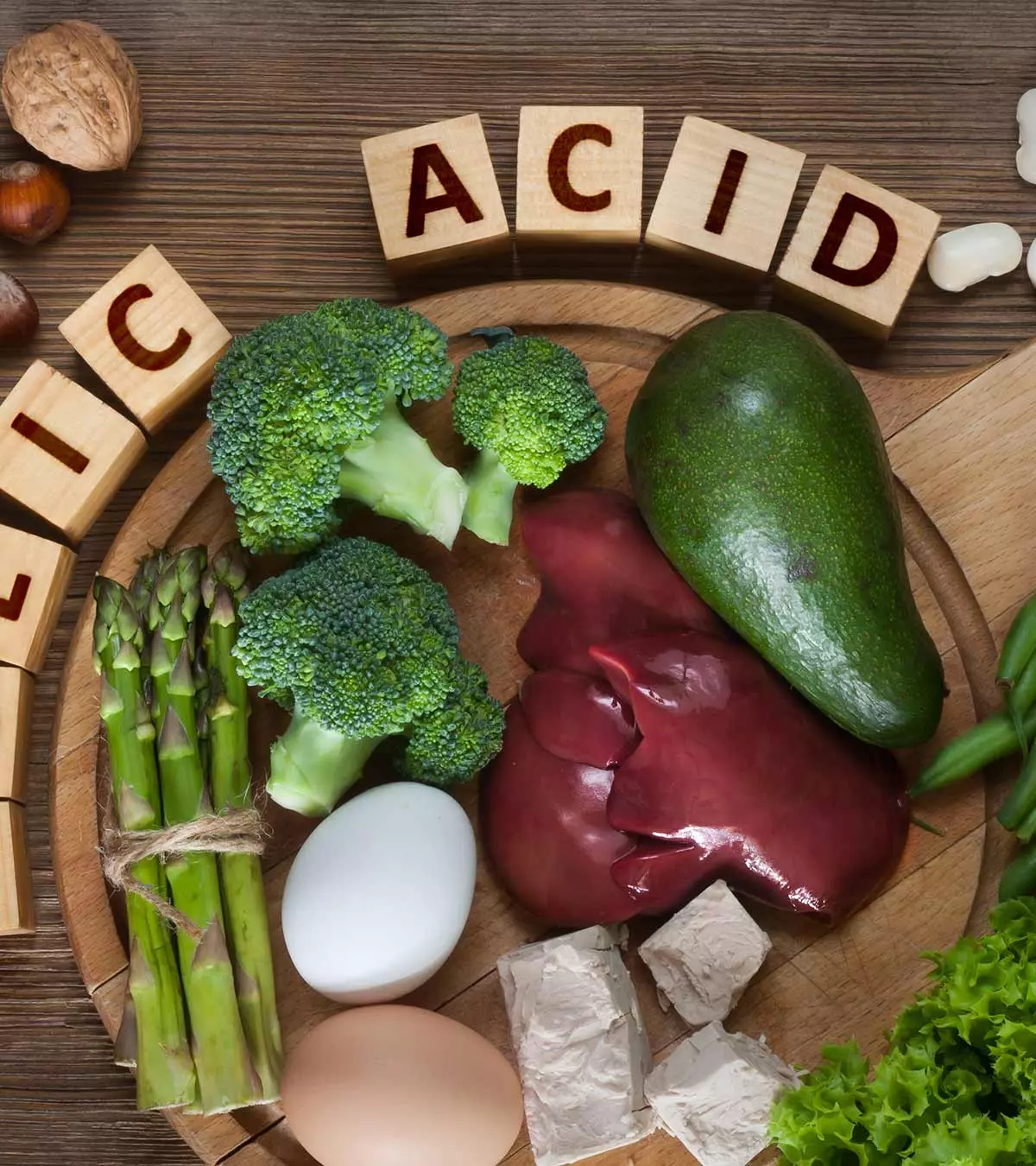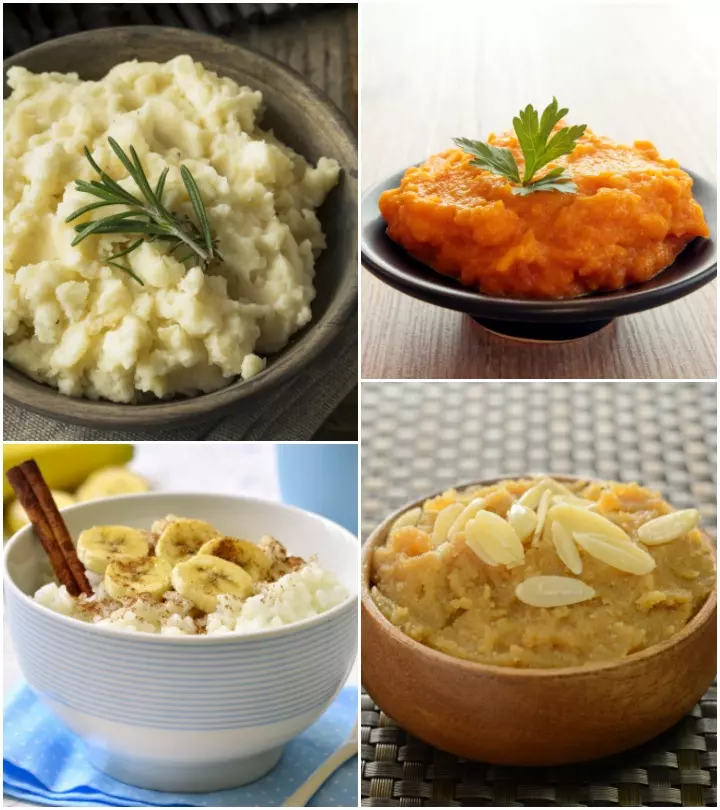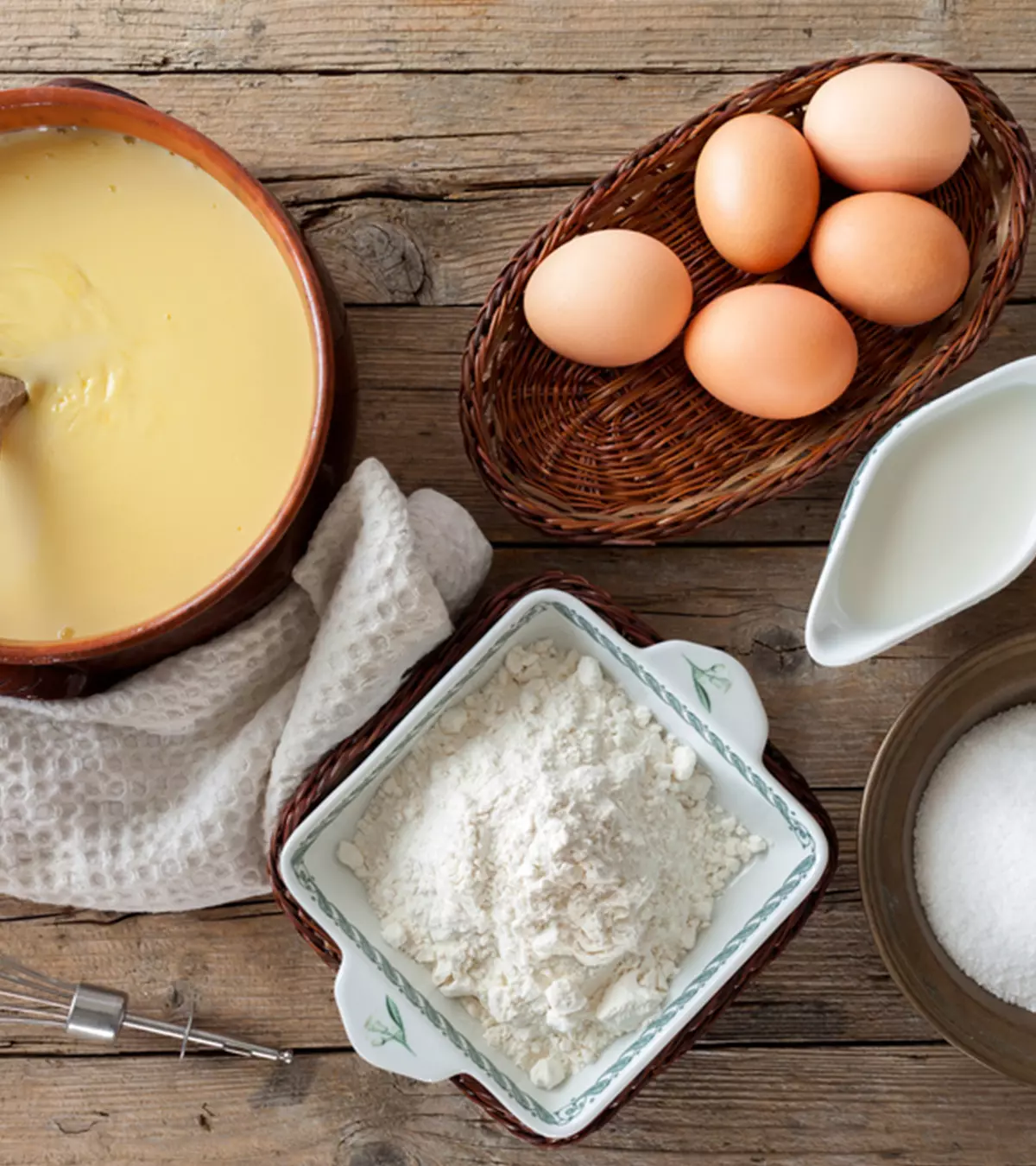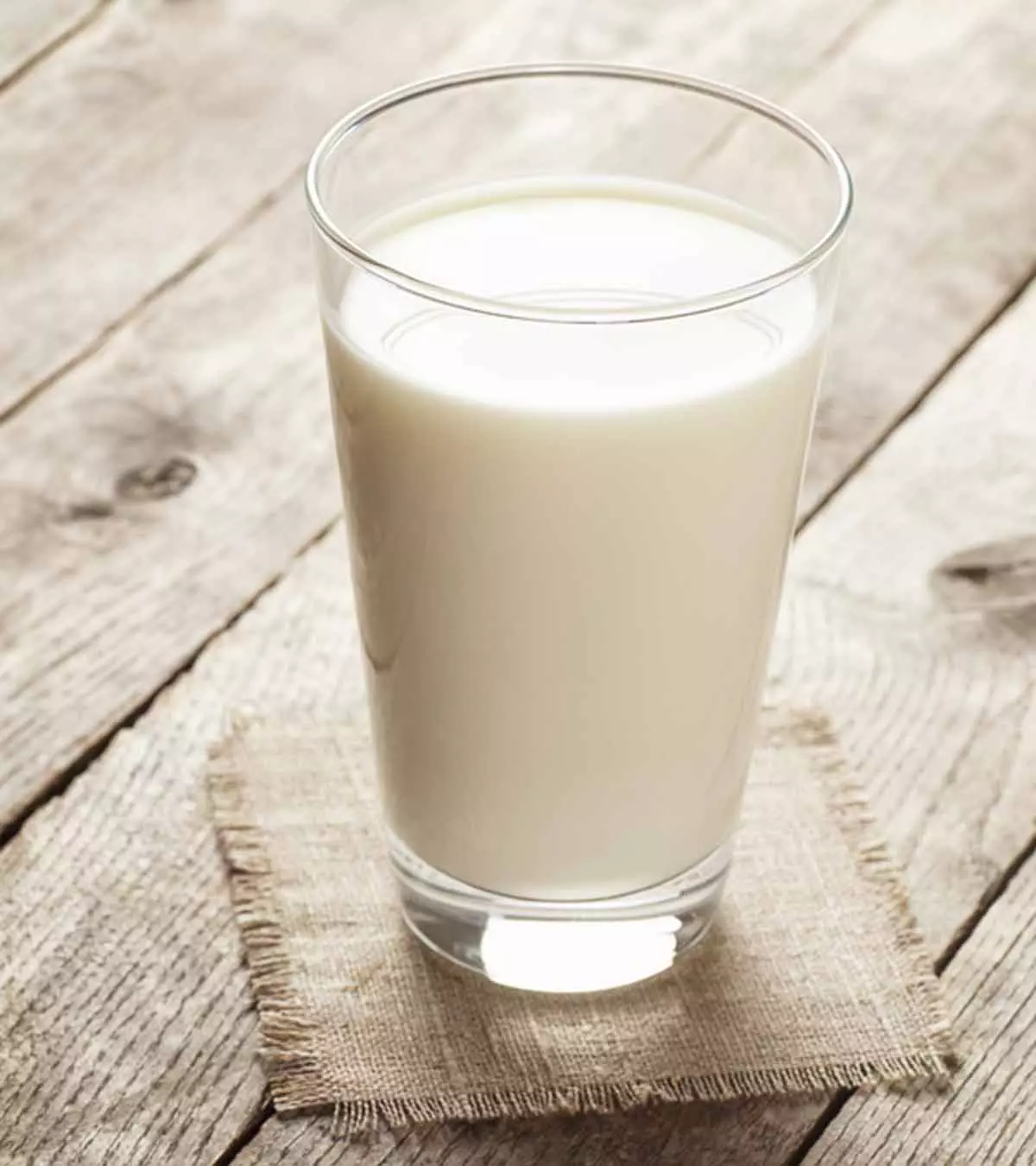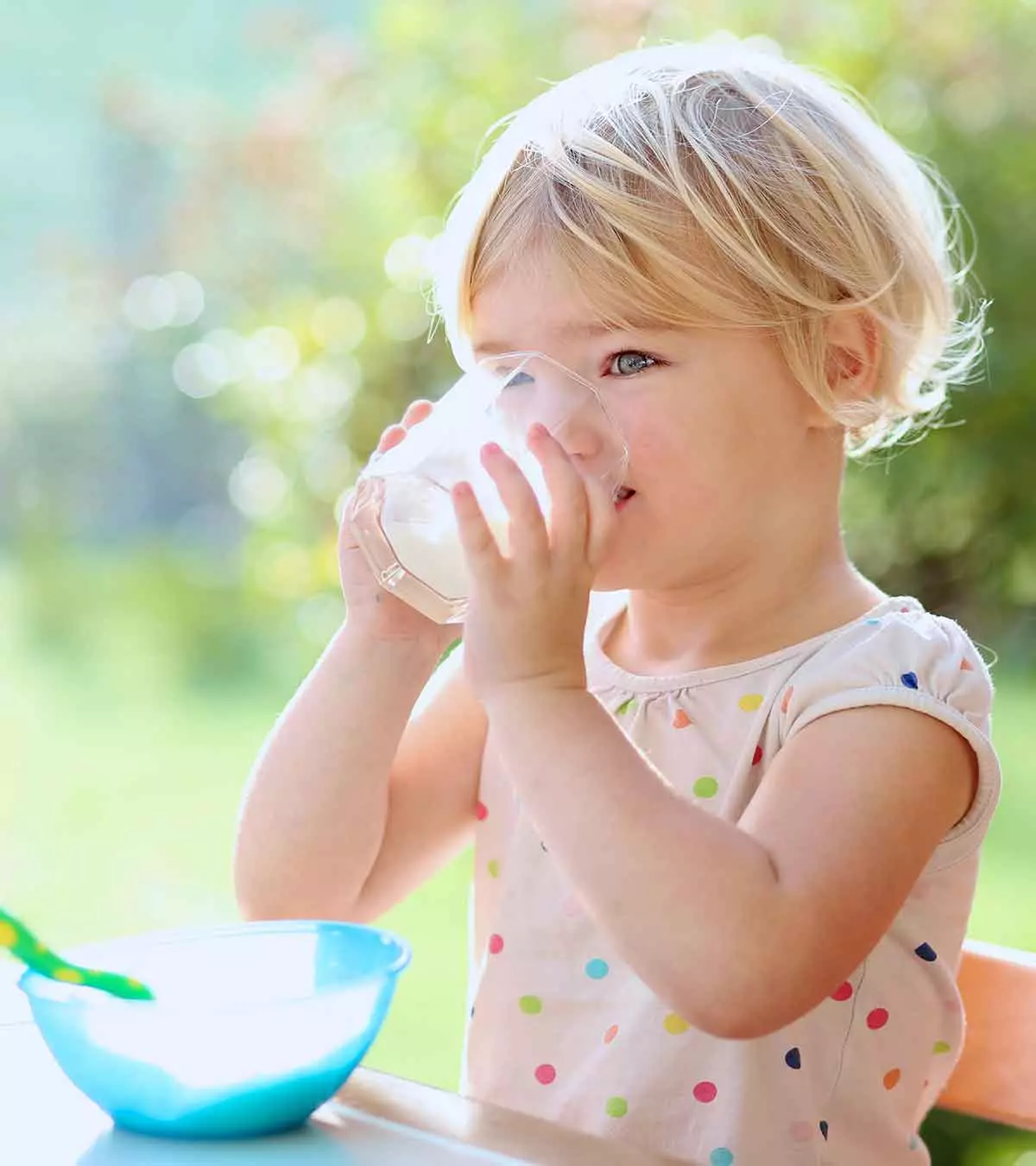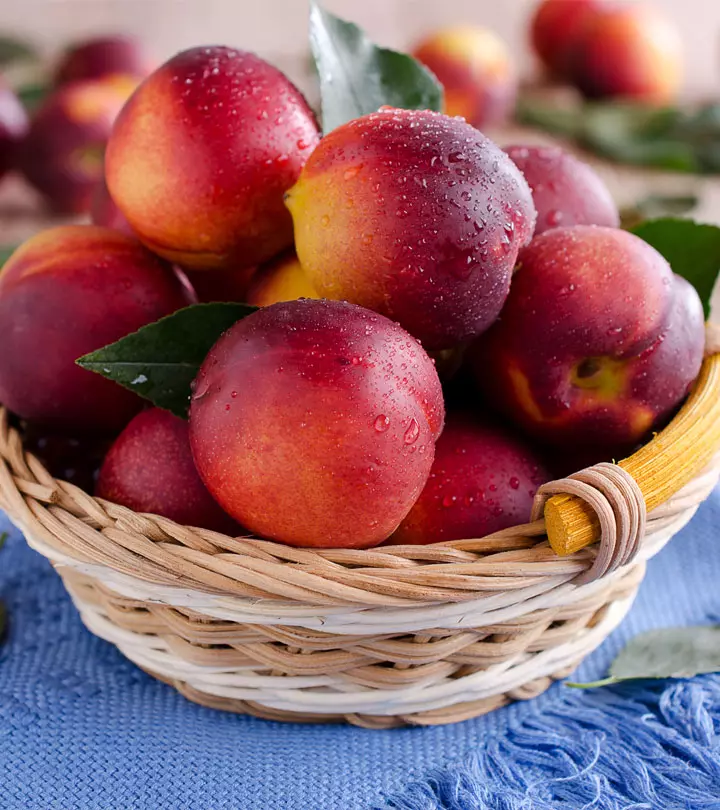
Image: ShutterStock
As a close cousin, nectarines share similarities with peaches in terms of appearance. The fruit is packed with sweetness and juicy goodness that can make you crave nectarines when pregnant. Also popular as stone fruits, nectarines are a summer fruit belonging to the Rosaceae family. The fruit encloses a hard seed within it, and outer juicy flesh covers the seed. Nectarines possess a unique aroma, and their nutritional content offers several health benefits. But just like any other food, it is natural to be skeptical about its safety when you are an expecting mother. So, if you want to try one of these but cannot decide if you should eat it or not, scroll through. We will tell you about nectarines, including their safety in pregnancy and health benefits.

Key Pointers
- Nectarines are similar in appearance to peaches and belong to the Rosaceae family.
- Pregnant women can safely consume nectarines, but it is recommended to wash them before eating to eliminate any harmful bacteria and parasites.
- Nectarines consumption aids in protecting the eyes, preventing hypokalemia, promoting healthy skin, protecting against cancer, and aiding digestion.
- Nectarines help in the development of muscles and blood vessels in the unborn baby and reduce the risk of birth defects in the fetus.
- Nectarines are an excellent source of fiber, vitamin C, potassium, lutein, vitamins A & C, beta-carotene, bioflavonoids, and antioxidants.
Is It Safe To Eat Nectarines During Pregnancy?

Yes, you can enjoy eating nectarines during pregnancy. However, you should wash the fruit before you eat it, as an unwashed nectarine may contain harmful parasites and bacteria that can lead to hazardous food-borne diseases, such as listeriosis and listeriosisiFood-borne bacterial infection in pregnant women characterized by diarrhea and fatigue, and flu-like symptoms. and toxoplasmosisiParasitic infection often caused by consumption of contaminated raw meat or exposure to cat feces. . So, wash the fruit to ensure you can safely enjoy eating it during pregnancy. However, it is advisable to consult your nutritionist or doctor before eating nectarines during pregnancy to be completely safe.
 Quick tip
Quick tipNutritional Value Of Nectarines
A small-sized raw nectarine (about 129 grams) provides you with several nutrients, including (1)
| NUTRIENT | AMOUNT |
|---|---|
| Energy | 55.5 kcal |
| Protein | 1.37g |
| Carbohydrate | 11.8g |
| Fiber | 1.94g |
| Magnesium | 11.4g |
| Potassium | 169mg |
| Phosphorus | 33.5mg |
| Vitamin C | 3.74mg |
| Niacin | 1.44mg |
| Vitamin A | 27.1µg |
| Folate | 7.74µg |
| Vitamin K | 2.58µg |
Source: US Department of Agriculture
Why Pregnant Women Crave For Nectarines?
Some pregnant women crave vitamin C-rich fruits and foods. Since nectarine is a vitamin C-enriched fruit, containing as much as 2.9mg of vitamin C for 100g of the fruit, pregnant women may crave nectarines to meet their recommended daily allowance (RDA) of vitamin C of 85mg per day (1). Cravings during pregnancy are mostly associated with fluctuating hormones, but if you’re craving fruits, it is most likely that your body is low in vitamin C (2).
Health Benefits Of Nectarines During Pregnancy
Vitamin and mineral content in juicy nectarines is highly beneficial for you and your unborn baby while expecting. Find below the prominent health benefits of eating nectarines when pregnant.
1. Prevents birth defects
Eating nectarine during pregnancy helps in preventing the risk of birth defects in your fetus. The mineral, vitamin, and folateiNaturally occurring form of Vitamin B9, responsible for protein metabolism and the production of red blood cells. content in the fruit minimize the risk of neural tube defects such as spina bifidaiA congenital disorder where the spinal cord doesn't fully develop, leading to physical and neurological complications. in your unborn baby. Also, consumption of the fruit promotes fetal health.
2. Fetal growth and development

Nectarines are a great source of nutrition as they contain fiber and vitamin C, which contribute to the appropriate growth and development of your fetus. The nutrient content in the fruit helps in the development of muscles and blood vessels of your unborn baby. Also, the potassium content in nectarines prevents muscle cramps and boosts your energy levels during pregnancy.
3. Safeguards eyes
Nectarines possess lutein and zeaxanthin, a crucial nutrient that promotes your eye health and minimizes the risk of eye diseases during pregnancy (10). Also, lutein acts as a strong antioxidant and prevents the risk of development of nuclear cataractiAn eye condition that causes the eye's lens to become cloudy. . Vitamin A and beta-carotene content in the fruit helps you maintain good eye health, improve your vision, and prevents the risk of xerophthalmiaiA condition caused due to vitamin A deficiency, characterized by dryness of the conjunctiva (a protective eye membrane). and blindness.
4. Promotes healthy skin
Nectarines contain bioflavonoids, lutein, beta-caroteneiA natural pigment that gives color to fruits and vegetables and gets converted into vitamin A in the human body. , vitamin C, and antioxidants that safeguard your skin from damage and promote your skin health substantially during pregnancy. Vitamin C aids in collagen synthesis and maintains toned up skin tissues, tendons, bone, and cartilage. Lutein provides a photo-protective effect and safeguards your skin from free radical damage and UV rays induced erythemaiA reaction to an injury, infection, or medication manifesting in the form of redness or inflammation on the skin. .
 Quick fact
Quick fact5. Aids digestion

The dietary fiber content in the alkaline, nutritious nectarine helps promote digestion and maintaining good health while expecting. Fiber absorbs water easily, promotes smooth bowel movements, and prevents the risk of constipation, ulcers, and gastritisiA condition marked by the inflammation of the stomach lining, leading to stomach pain, bloating, and other digestive problems. during pregnancy. Also, nectarines promote detoxification and ward off harmful toxins out from your body. Furthermore, the fibers slow down the absorption of sugars in the body, effectively maintaining blood sugar levels and preventing diabetes (9).
6. Protects from cancer
Chlorogenic acid in nectarines helps prevent tumors. The acid inhibits the growth of cancerous cells and protects you from developing colon and lung cancer while expecting (9).
7. Reduces stress
Nectarines have a high magnesium content, i.e., 8.8mg in every 100g of fruit (3), which can help prevent maternal stress and anxiety (4). It has been found that magnesium-rich foods help in the production of neurotransmitters, such as dopamine and GABA, which, in turn, keep one in a good mood (5).
Incorporating Nectarines Into Your Pregnancy Diet
Nectarines have a healthy nutritional profile, making them suitable fruit to satiate your pregnancy cravings. Here are a few ways to include nectarines in your diet (11).
- Eat fresh or honey caramelized nectarine slices paired with yogurt as part of your midmeal snacks.
- Add chopped nectarines to your breakfast oatmeal, cereal, or pancakes.
- Add chopped nectarines or its pulp to muffins, cakes, mousses, and other desserts.
- Pair grilled nectarines with savory dishes, or bake them into pies, tarts, or a cobbler.
- Add diced nectarine to salsas, salads, and sauces to give them a tangy flavor.
Frequently Asked Questions
1. How many nectarines can I eat a day in pregnancy?
Eating two servings (1 cup) of fruit a day, including nectarine, is recommended during pregnancy (6).
2. Will I gain weight if I eat nectarines during pregnancy?
Nectarine is a healthy snack as it is relatively low in its calorie and fat content (7); also, eating fruits and vegetables is associated with promoting healthy weight management. Therefore, eating nectarines cannot lead to weight gain during pregnancy.
3. Will eating nectarines in pregnancy lead to gestational diabetes?
Nectarines are high in sugar content, and you may avoid their excess consumption to reduce the risk of developing gestational diabetes or manage existing gestational diabetes effectively (8).
There are many good fruits to eat during pregnancy. Nectarines can be considered among the best fruits to eat during pregnancy as they are packed with juicy goodness and natural sweetness. You can safely consume nectarine during pregnancy in moderation and as part of a well-balanced diet. Being rich in vital nutrients, such as fiber, vitamins, minerals, and antioxidants, they can help meet your nutritional needs during pregnancy. You can eat nectarines as is or add them to salads, casseroles, and pasta to make delectable dishes. Alternatively, you can also use nectarines to make refreshing mocktails and fruit punches. However, since such drinks are high in sugar, strictly limit their intake.
Infographic: Advantages Of Including Nectarines In Pregnancy Diet
Nectarines are a peach variety rich in antioxidants and other nutrients that can satisfy any sweet cravings you may have during pregnancy. They also provide various benefits for expectant mothers. So, check out the infographic below to discover how consuming nectarines supports your pregnancy.
Some thing wrong with infographic shortcode. please verify shortcode syntaxIllustration: Can You Eat Nectarines During Pregnancy?

Image: Dall·E/MomJunction Design Team
References
- Nectarines raw
https://fdc.nal.usda.gov/fdc-app.html#/food-details/327357/nutrients - Uncovering the Causes of Pregnancy Cravings
https://www.hawaiipacifichealth.org/healthier-hawaii/eat-healthy/uncovering-the-causes-of-pregnancy-cravings/ - George J. Kontoghiorghes et al.; (2025); Trying to Solve the Puzzle of the Interaction of Ascorbic Acid and Iron: Redox Chelation and Therapeutic Implications
https://www.ncbi.nlm.nih.gov/pmc/articles/PMC7460366/ - Gisèle Pickering et al.; (2025); Magnesium Status and Stress: The Vicious Circle Concept Revisited.
https://www.ncbi.nlm.nih.gov/pmc/articles/PMC7761127/ - Managing Stress by Eating Right.
https://www.nj.gov/csc/employees/programs/advisory/pdf/Managing%20Stress%20by%20Eating%20Right.pdf - Healthy Eating During Pregnancy
https://www.pregnancybirthbaby.org.au/healthy-diet-during-pregnancy - Fruits Nutrition Facts
https://www.fda.gov/media/76508/download - Wu-Qing Huang et al.; (2017); Excessive fruit consumption during the second trimester is associated with increased likelihood of gestational diabetes mellitus: a prospective study
https://idp.nature.com/authorize?response_type=cookie&client_id=grover&redirect_uri=https%3A%2F%2Fwww.nature.com%2Farticles%2Fsrep43620 - Superfood of the day- Nectarines-the Sweet taste of Summer!
https://cuisineforhealing.org/superfood-of-the-day-nectarines-the-sweet-taste-of-summer/?utm_source=rss&utm_medium=rss&utm_campaign=superfood-of-the-day-nectarines-the-sweet-taste-of-summer&v=28886f13f578 - Maneli Mozaffariehnet al; (2003); The role of the carotenoids, lutein and zeaxanthin, in protecting against age-related macular degeneration: A review based on controversial evidence.
https://pmc.ncbi.nlm.nih.gov/articles/PMC305368/ - Nectarines.
https://reallifegoodfood.umn.edu/fruits/nectarines
Community Experiences
Join the conversation and become a part of our nurturing community! Share your stories, experiences, and insights to connect with fellow parents.
Read full bio of Shivani Sikri
Read full bio of Ria Saha
Read full bio of Swati Patwal
Read full bio of Lorraine Teron







